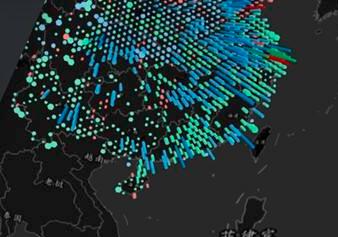Geological Informatization
WANG Bin, LI Jingchao, SHI Junfa, SONG Guoxi, GAO, Zhenji
[Objective] In today's rapidly evolving world, emerging information technologies such as big data, artificial intelligence, the Internet, blockchain, and remote sensing are driving significant changes in current work methodologies and shaping a new paradigm for earth science research. Big data, serving as both a foundational infrastructure and a novel component, offers fresh opportunities and technical support for modernizing geological surveys. Precision monitoring, accurate forecasting, and refined services have become essential requirements for achieving high-quality development in geological survey work. The United States Geological Survey and other advanced countries' geological survey institutions are vigorously pursuing the informatization, digitalization, and intelligent transformation of their operations. These efforts have yielded substantial progress, with many having essentially achieved geological survey modernization.
[Method] Information technology stands as a pivotal force behind the transformation and evolution of geological survey endeavors. The integration of contemporary information technologies is revolutionizing traditional geological survey models, markedly enhancing efficiency, capacity, and the overall level of geological survey work. This paper commences by defining the fundamental essence of geological survey modernization, encompassing the establishment of a three-dimensional survey monitoring and observation system, an analysis, prediction, and evaluation framework, an information service system, business informatization support systems, a geological science and technology innovation ecosystem, and a comprehensive geological survey management structure. It further delineates the trajectory and orientation of geological survey modernization, aiming at digitization of surveys, automation of monitoring, quantification of predictions, intelligence in evaluations, and wisdom in services.
[Result] Drawing upon the meteorology sector as a representative example, which heavily relies on earth observation technologies, the paper outlines strategies for advancing meteorology modernization through satellite remote sensing and digital analysis simulation techniques. These include automating data collection, enhancing the sophistication of numerical forecasting, centralizing information resource management, refining social services, and standardizing operational procedures. Lastly, grounded in the practical context of geological surveys, the paper proposes strategies and recommendations for China's geological survey modernization. These encompass building infrastructural foundations for geological surveying and monitoring, developing business informatization capabilities, expanding geological information products, establishing standards for geological informatization, and conducting research into basic theories and technological equipment within the realm of informatization.
[Conclusion] Looking ahead, automation, informatization, and intelligence will characterize the new era of geological survey work. Consequently, accelerating the construction of geological survey modernization is not only imperative but also urgently needed.
